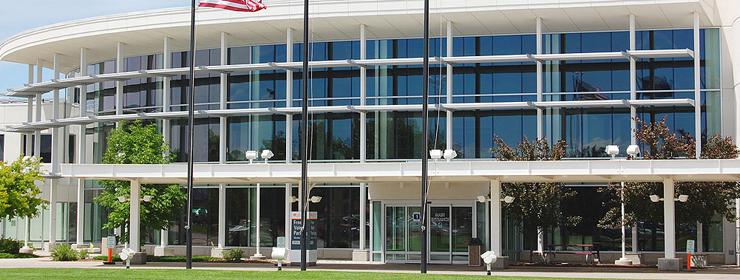
Regional West Recognizes American Diabetes Alert Day on March 28
SCOTTSBLUFF, Neb., ― More than 133 million Americans have diabetes or prediabetes. On American Diabetes Alert Day Tuesday, March 28, Regional West encourages people to learn more about diabetes and the importance of understanding risk factors.
According to the Centers for Disease Control and Prevention (CDC), diabetes is a chronic health condition that affects how the body turns food into energy. There are three main types of diabetes: type 1, type 2, and gestational diabetes, or diabetes while pregnant. Type 1 diabetes stops the body from creating insulin, a hormone produced in the pancreas that regulates blood sugar. With type 2 diabetes, the body doesn’t use insulin well and has difficulty regulating blood sugars. This is the most common form of diabetes. Gestational diabetes occurs in pregnant women who have never had diabetes, and usually goes away after the baby is born.
Approximately one in three Americans have prediabetes, a condition where the body may not make enough insulin or use it fully to effectively regulate blood sugar. However, more than eight in 10 people don’t know they have it. Prediabetes raises the risk for type 2 diabetes, heart disease, and stroke.
There may be few to no symptoms with type 2 or gestational diabetes. However, if symptoms do appear, they may include frequent urination; abnormal thirst or hunger; sudden weight loss; more frequent infections, or sores that heal slowly; blurry vision; tingling or numbness in hands and feet; and fatigue.
Mayda Zimmerman, APRN, NP-C, a nurse practitioner in Regional West Physicians Clinic-Diabetes Care Center, stresses the importance of seeing a physician or provider right away if symptoms develop.
“The Diabetes Care Center encourages anyone with diabetes-related concerns or symptoms to see their physician or provider right away,” she said. “When type 2 diabetes goes undiagnosed, patients may end up with complications such as cardiovascular disease, kidney failure, vision loss, or even amputation. Those that are undiagnosed with type 1 diabetes are at risk of diabetic ketoacidosis (DKA), which can be life-threatening.”
Zimmerman says it’s also important to recognize diabetes risk factors. For type 1 diabetes, risk factors include a family history of type 1 diabetes and age, as this type typically develops in children, teens, or young adults. People may be at risk for type 2 diabetes if they have prediabetes, are overweight, are physically inactive, or have a family history of diabetes. Pregnant women may develop gestational diabetes if they have had gestational diabetes in a previous pregnancy, given birth to a baby over nine pounds, or have polycystic ovary syndrome (PCOS).
Regional West Physicians Clinic-Diabetes Care Center offers a number of diabetes management tools to both newly diagnosed and long-term patients. The Diabetes Care Center provides medical care, education, and support for people affected by diabetes while helping them better understand and manage their condition. This includes diabetes self-care management, which provides patient education in areas such as nutrition management, continuous glucose monitoring, and health habits.
To learn more about Regional West’s Diabetes Care Center, call 308-630-3700, or visit RWHS.org.
Regional West Health Services in Scottsbluff, Neb., is the parent company of Regional West Medical Center, a 188-bed regional referral center and the only Level II Trauma Center in Nebraska west of Kearney. As the region’s only tertiary referral medical center, Regional West offers care that spans more than 32 medical specialties provided by over 28 physician clinics. With nearly 300 in-network providers and approximately 2,000 staff members, Regional West provides comprehensive and innovative healthcare services for the people of western Nebraska and the neighboring states of Colorado, South Dakota, and Wyoming.